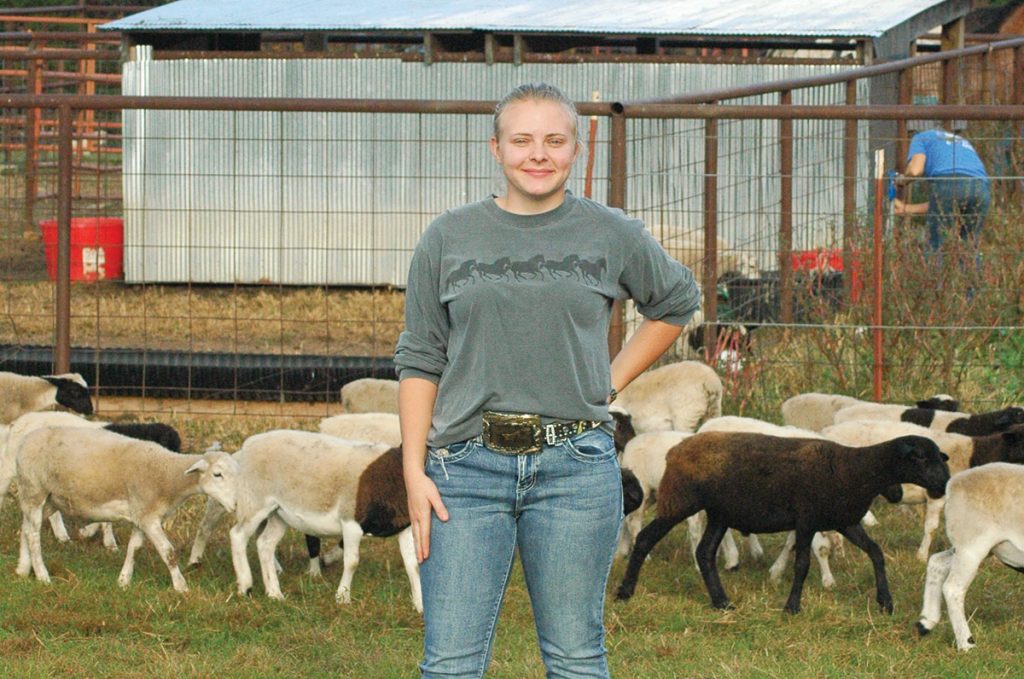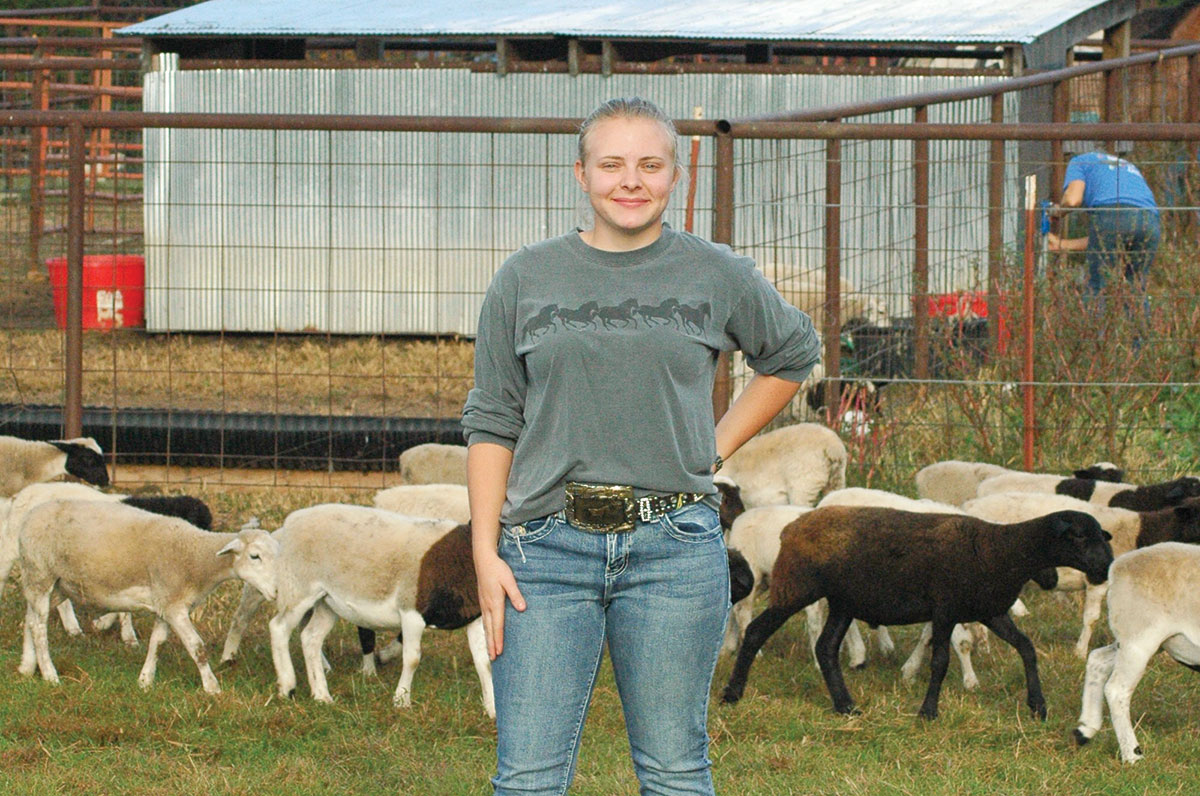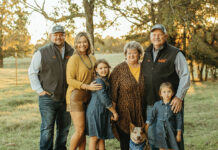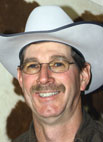
Whitnee Wallace is working to make her dream of her own farm a reality
Whitnee Wallace leaned forward and her eyes lit up with enthusiasm as she started to talk about her love of farming. “I may take a few business classes,” she said when asked about plans for college. “But no matter what, I will always farm.”
She said she plans to start work at the U.S. Postal Service to support her love for farming.
“It’s good hours, good benefits and that will give me the time to pursue my career in agriculture. I just love everything about it,” Whitnee said.
Seven years ago, her family traded a horse for a registered Dorper ram, they liked him so much they decided to purchase 30 Katadin ewes. Whitnee started improving her herd through breeding and has started adding new Dorper genetics in the last two years. She prefers Dorper sheep because they are hardier, heavier and retain fat better – a trait that is in demand for market lambs.
Whitnee laughed as she recalled a breeding ewe she showed.
“I had to take her off pasture so she would lose enough weight for me to show her,” she said.
Whitnee now runs her own market lamb operation on her family’s farm north of Ozark, Ark. She currently has a herd of 13 Dorper-cross ewes and several goats. She won Reserve Grand Champion of the 2019 Arkansas Oklahoma State Fair for the Dorper breed.
“I like the haired sheep so that we don’t have to shear them,” Whitnee said. “As I understand it, wool prices aren’t very good, so with the amount of work that goes into it, it just isn’t worth it. Haired sheep usually bring in more at market.”
She explained that haired sheep produce better meat products because they don’t retain as much lanolin and are heavier.
In addition to sheep, the family also has a small goat herd.
“We use the goats mainly to clear up brush that the sheep don’t get and we have a few dairy goats that I milk. I leave the kids on so that we don’t have to milk all the time,” Whitnee said. “We drink the milk or we use it for bottle feeding the lambs.”
She also said another benefit to raising sheep rather than goats is that they lamb two times per year.
“We leave the rams in year-round, they just seem to do better,” she said.
During summer, the ewes are out on summer grasses. In winter, they feed hay and protein tubs. After lambing season, they get cubes. After weaning, the lambs get fed creep feed until they are taken to sale.
Lambs are marketed locally and at the sheep and goat sale in Harrison. Their target weight group is 70 to 80 pounds.
“We usually take a load three times a year. If we have good grass in the summer, we will hold the lambs over from the spring,” Whitnee explained. “Prices of lamb are usually higher in the fall because of the holidays. If we want to try a new sale, we will look online and take a few to see how they do.”
Animal health protocals are carefully followed.
“We deworm roughly every three months. We worm when the sheep need it, not on a schedule,” Whitnee explained.
“This year we have started vaccinating for corynebacterium pseudotuberculosis (also known as CL) once a year. This year we are also planning on starting a 7-way shot.
Fencing for sheep and goats can be a bit of an issue, but Whitnee and her family have a system in place that works well.”
“We use the same fencing all over. It’s Stay-Tuff 3-inch net wire. We’ve used regular 5-inch net wire before but it didn’t last well, predators could get in pretty easily, and the goats would get their head stuck in it. We have referenced all of our pens in the past two years. We run two strands of barbed wire on top and one on the bottom about and an inch off the ground.”
In addition to predator fencing, the Wallaces have guardian dogs and put the sheep and goats up at night to reduce losses from coyotes and other predators.
She has recenlty gotten into the cattle business as well.
“In January 2019, a local farmer had a bottle calf that she wanted to give it to a 4-Her. So she heard about me and I got him. This was my first experience with any kind of cattle. Dad helped me find a LimFlex heifer and I was able to show them this year at the Arkansas Youth Expo in Fayetteville.”
Whitnee placed second in her class with her heifer.
She intends to keep that heifer to start her own cattle herd. Since she doesn’t currently have a bull, she will breed her using AI and looks forward to learning more about the process.
Whitnee served three terms as Franklin County 4-H president and is currently serving a term as county treasurer and State 4-H ambassador. She is very active in 4-H as a member of the Mountaineers, Shooting Sports, Vet Science and Teen Leaders Clubs.







